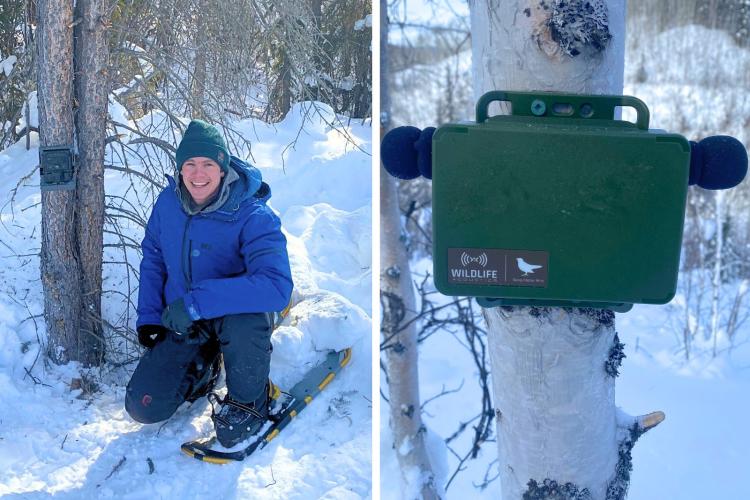Breadcrumbs
Industrial disturbance and wolverines

Master’s student Zachary Fogel is studying the impact of industrial disturbance on wolverines in the Klondike goldfields with the Tr’ondëk Hwëch’in First Nation, and Government of Yukon Department of Environment.
Zach joined this project last fall and has been closely involved in setting up wildlife cameras and autonomous recording units (ARUs). These data will help determine wolverine population densities at each study site (cameras) and monitor the level of noise from machinery and vehicles (ARUs). The ARU data, in tandem with mapped disturbances from satellite imagery, will be used to assess differences in wolverine density at different disturbance levels, ranging from zero to high disturbance.
This ongoing project is part of a larger collaborative effort in the area, led by Environment and Climate Change Canada, and known as the South Beringia Priority Place Initiative. Wolverines, a species of concern in Canada, and culturally important to the Tr’ondëk Hwëch’in, are a strong indicator of an ecosystem’s general health. By understanding their vulnerability to expanding development such as mining, we can better protect this Priority Place Region for wolverine and other species.
Zach is currently in the first year of his MSc in Conservation Biology, based at YukonU in collaboration with the University of Alberta. He is advised by YukonU and UofA professor, Dr. Fiona Schmiegelow.
Written by student communications assistant, Naomi Dedon.